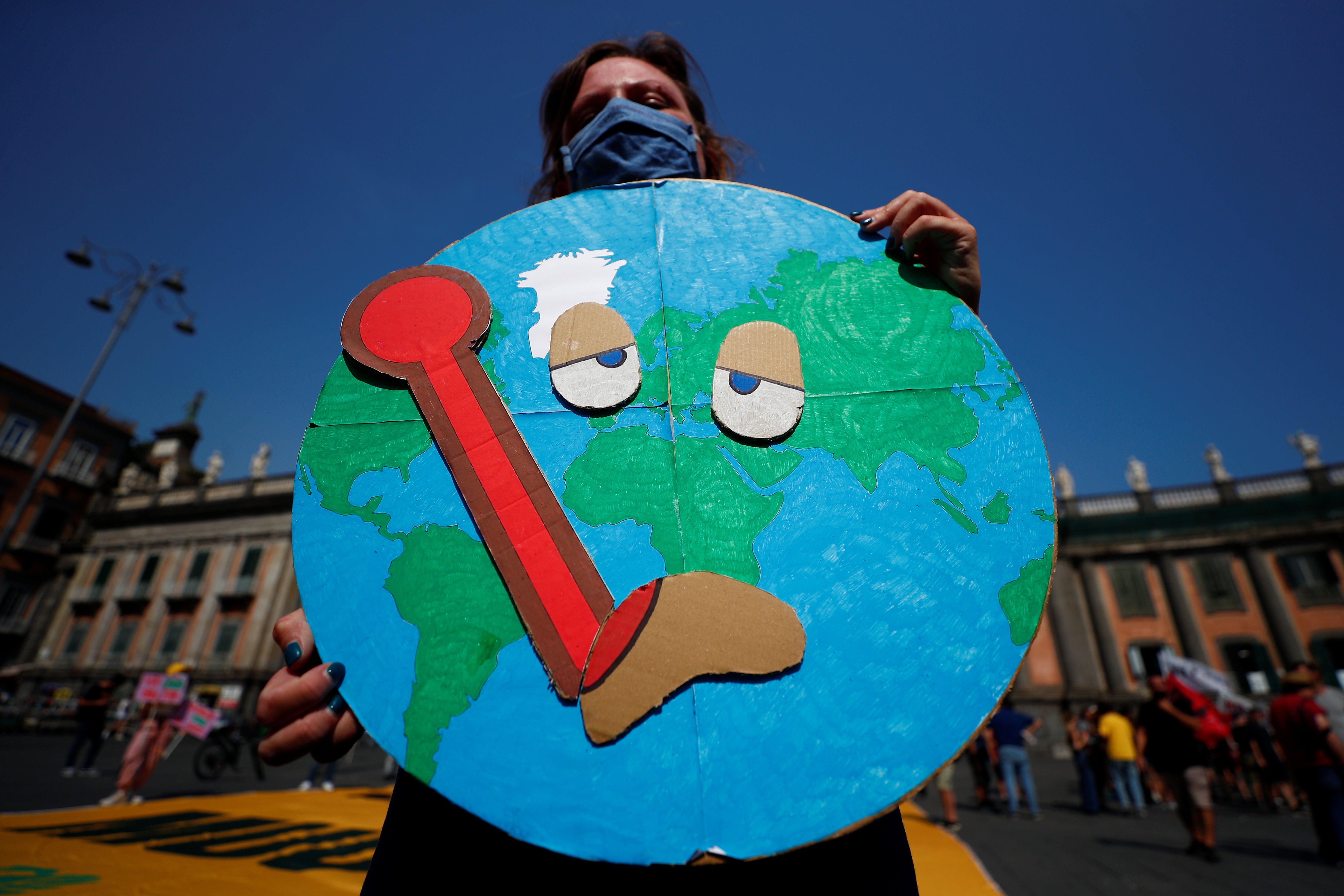Climate action must happen ‘for our people, not to them’, cities say
Climate action ‘can’t be about just telling our poorest residents what they have to give up’ Glasgow city council leader Susan Aitken said at an event marking 100 days until an international climate conference is held in the city

Your support helps us to tell the story
From reproductive rights to climate change to Big Tech, The Independent is on the ground when the story is developing. Whether it's investigating the financials of Elon Musk's pro-Trump PAC or producing our latest documentary, 'The A Word', which shines a light on the American women fighting for reproductive rights, we know how important it is to parse out the facts from the messaging.
At such a critical moment in US history, we need reporters on the ground. Your donation allows us to keep sending journalists to speak to both sides of the story.
The Independent is trusted by Americans across the entire political spectrum. And unlike many other quality news outlets, we choose not to lock Americans out of our reporting and analysis with paywalls. We believe quality journalism should be available to everyone, paid for by those who can afford it.
Your support makes all the difference.Efforts to push low-carbon lifestyles and green energy to curb climate change will fail unless many people see benefits - and the poorest and most vulnerable should get the biggest gains, leading mayors and other city officials urged Friday.
“The journey to net-zero (emissions) has to happen with and for our people, not to them,” warned Susan Aitken, leader of the city council in Glasgow, the Scottish city that will host the COP26 U.N. climate negotiations in November.
“It can’t be about just telling our poorest residents what they have to give up ... (It) has to show how to take advantage of this changing world,” she said during an online event marking 100 days until the key talks.
More than a half-century later, Glasgow is still battling social deprivation as a result of the city’s painful industrial decline starting in the 1950s, Aitken said.
That has made clear that as a new major economic shift gets underway to try to ward off surging climate threats, “anything but a just transition we will come to regret”, she said.
Nigel Topping, Britain’s high-level climate action champion for COP26, said failure to make sure the coming green shift was fair and benefitted the poor as well as the rich would derail it.
“If we don’t do it inclusively, the politics will end up being against us,” he said during the event organised by the C40 Cities network of major cities pushing for swifter action on climate change.
Cities have been at the forefront of government climate action over the last decade, with many declaring net-zero emissions goals long before countries or businesses followed suit.
Today more than 750 global cities have pledged to reach net-zero emissions by mid-century, said David Miller, director of international diplomacy for C40.
As efforts to act more swiftly on climate threats build globally, “cities can show national governments the leadership that’s required,” said London Mayor Sadiq Khan.
Providing jobs, more affordable energy, more comfortable homes and better access to carbon-absorbing green spaces for all residents - including the poor - is a key part of that push, the mayors said.
Ada Colau, Barcelona’s mayor, pointed to efforts in her city to launch a new company to supply green electricity, resulting in both lower emissions and cheaper power for residents.
Mohammed Adjei Sowah, the mayor of Ghana’s capital of Accra, said his city’s push to cut emissions involved recognising that informal workers make up at least 75 per cent of the city’s workforce and trying to bring them into new jobs that are green and more stable.
“To ensure a truly just transition... we cannot afford to ignore the informal sector in the things we are doing,” he said.
Sharan Burrow, general secretary of the International Trade Union Confederation, said ensuring a low-carbon transition focuses as much on jobs and families as cutting emissions is vital to its success.
“We know our common security is based not just on having a healthy planet but secure jobs with decent work, where people have opportunities for themselves and the future,” she said.
Reuters
Join our commenting forum
Join thought-provoking conversations, follow other Independent readers and see their replies
Comments